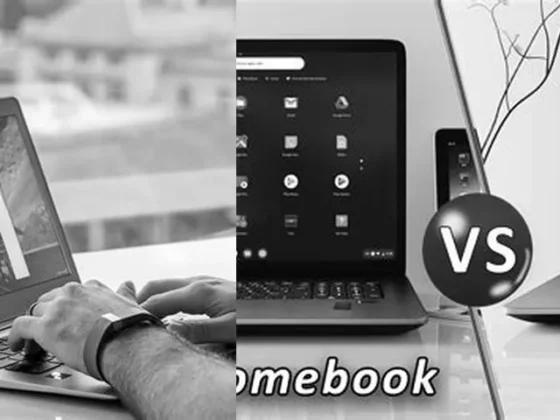What Is the Main Purpose of a Chromebook? Unveiling the Power and Potential of ChromeOS – Are you tired of sluggish laptops that take forever to boot up and constantly crash? Do you want a device that is secure, simple to use, and optimized for the online world we live in? Look no further than the Chromebook! In this blog post, we will dive deep into the main purpose of a Chromebook and explore why it has become the go-to choice for tech-savvy individuals. Whether you’re a student, professional, or avid gamer, the Chromebook has something to offer. So, sit back, relax, and let’s unravel the secrets of this modern marvel together.
Understanding the Chromebook: A Tool for the Modern World
Chromebooks have emerged as a significant player in the realm of personal computing, aiming to streamline the user experience and cater to the evolving demands of internet-centric tasks. Understanding the core purpose of a Chromebook requires diving into its design philosophy, capabilities, and the specific user needs it seeks to fulfill.
The Essence of ChromeOS: Speed, Security, and Simplicity
At the heart of a Chromebook is ChromeOS, a lightweight operating system that champions speed and simplicity. By focusing on cloud storage and seamless Google integration, ChromeOS ensures that your most important data is accessible and secure, no matter where you are. The multiple layers of security built into ChromeOS safeguard users against the myriad threats lurking online, providing a robust shield for everyday use.
ChromeOS and Cloud Storage
Cloud storage is a cornerstone of the Chromebook experience, offering users the ability to store files and media on remote servers. This not only frees up local storage space but also grants access to your data from any device connected to the internet. With cloud storage, the concern over losing important documents due to hardware failure is significantly diminished.
Google Integration
Google’s suite of productivity applications, such as Google Docs, Sheets, and Slides, are fully integrated into ChromeOS, enabling real-time collaboration and synchronization across devices. This integration is particularly beneficial for users who are already invested in Google’s ecosystem, providing a seamless transition from other devices to the Chromebook.
Security Features
ChromeOS is designed with security in mind, featuring automatic updates that keep the system fortified against the latest threats. The use of sandboxing technology ensures that each web page and application runs in a contained environment, preventing malicious code from affecting the system at large.
Optimized for Online Use and Entertainment
Chromebooks are optimized for online activities, whether it’s browsing the internet, managing emails, or indulging in a vast array of online videos. The dedicated Chrome browser, enhanced for the Chromebook, is a gateway to the web, offering fast and efficient access to online content.
Web Browsing and Email Management
The Chrome internet browser is the centerpiece of the Chromebook’s functionality. Users can expect a nimble browsing experience, with quick load times and a user-friendly interface. Managing emails is also a breeze, with intuitive access to services like Gmail and other web-based email clients.
Entertainment: Streaming and Media Consumption
For those who revel in streaming services and online video platforms, the Chromebook presents a convenient and cost-effective solution. With support for popular services like Netflix, YouTube, and others, Chromebooks are capable entertainment devices for movie buffs and video aficionados alike.
The Chromebook as a Gaming and App Platform
Gaming on a Chromebook might not match the high-end capabilities of dedicated gaming PCs, but it does offer a respectable platform for casual and mobile gaming. Thanks to the ability to install Android applications from the Google Play Store, users have access to a plethora of games and apps, expanding the Chromebook’s versatility.
Android Apps on Chromebook
The inclusion of the Google Play Store opens up a world of applications for Chromebook users. From productivity apps to games, the range of Android apps available offers a tailored experience, allowing users to customize their device to suit their individual needs and preferences.
Cost-Effectiveness: The Affordable Computing Choice
One of the most compelling reasons for choosing a Chromebook is its affordability. When compared to Windows PCs with similar specifications, Chromebooks can be hundreds of dollars cheaper. This cost advantage does not come at the expense of quality or functionality, as Chromebooks deliver a streamlined experience that covers the essentials for many users.
A Comparison of Value
When evaluating the value proposition of Chromebooks, it’s crucial to consider the targeted use cases. For users who primarily require a device for web-based tasks and light applications, the investment in a Chromebook is often justified by the savings and the efficiency it offers.
Chromebook Limitations: What You Might Miss
Despite the myriad benefits, Chromebooks are not without their limitations. Tasks that require heavy processing power or specialized software that is not cloud-based or available through the Google Play Store may not be suitable for a Chromebook. High-end gaming, video editing, and complex graphic design work are examples of such tasks.
Software and Performance Constraints
The reliance on cloud services and the Google ecosystem means that software not optimized for ChromeOS or available as an Android app cannot be used on a Chromebook. Additionally, the hardware specifications of Chromebooks are typically geared towards efficiency rather than high performance, which may limit their suitability for intensive computational tasks.
Peripheral Compatibility and Expandability
Another point to consider is the compatibility with external devices and peripherals. While Chromebooks support a range of USB devices and accessories, users may encounter challenges when attempting to connect specialized hardware that requires specific drivers or software not available on ChromeOS.
A Glimpse into Real-World Chromebook Applications
By examining the practical applications of Chromebooks, we can better understand their main purpose. Chromebooks serve as an ideal solution for students, professionals, and casual users who prioritize mobility, affordability, and ease of use. They are particularly well-suited for educational environments, where the integration of Google Classroom and other educational apps can enhance the learning experience.
Chromebooks in Education
Schools have embraced Chromebooks as a cost-effective way to provide students with access to educational resources and collaborative tools. The simplicity and manageability of Chromebooks make them a preferred choice for educators and IT administrators in educational settings.
Chromebooks for Professionals
Professionals who require a reliable device for communication, document creation, and online research will find that Chromebooks meet their needs effectively. The long battery life and lightweight design of Chromebooks also make them suitable for on-the-go use, such as in fieldwork or business travel.
The Everyday User’s Companion
For the everyday user, the Chromebook is a companion that offers quick access to the internet, social media, and streaming services. The ease of use and low maintenance requirements make Chromebooks an attractive option for those who want a straightforward computing experience without the complexity of traditional laptops.
Conclusion: The Chromebook’s Place in the Tech Landscape
The main purpose of a Chromebook is to provide a streamlined, secure, and cost-effective computing experience that excels in internet-based tasks and applications. While it may not replace more powerful PCs for specialized tasks, the Chromebook stands out as a compelling choice for users seeking simplicity and efficiency in their digital lives. As technology continues to evolve, the Chromebook’s role as a gateway to the web and cloud services is likely to grow, cementing its position as a valuable tool for a wide range of users.
FAQ & Related Questions about Chromebooks
Q: What is the main purpose of a Chromebook?
A: The main purpose of a Chromebook is to help users get things done faster and easier. It is designed to run on ChromeOS, an operating system that offers cloud storage, Google integration, and multiple layers of security.
Q: What can I not do on a Chromebook?
A: While Chromebooks are versatile, there are a few limitations. They are primarily designed for online tasks such as reading websites, checking email, and watching online videos. They may not be suitable for resource-intensive tasks like video editing or running certain software applications.
Q: What are Chromebooks most used for?
A: Chromebooks are commonly used for a variety of tasks, including browsing the internet, watching movies, and playing games. Users can work directly from the Chrome internet browser or install Android applications from the Google Play Store.
Q: What advantages do Chromebooks have over laptops?
A: Chromebooks have several advantages over traditional laptops. They are simpler to use, often more affordable, and optimized for speed and efficiency. Additionally, Chromebooks typically have longer battery life and receive automatic updates for enhanced security.
Q: Can I store files on a Chromebook?
A: Yes, you can store files on a Chromebook. While Chromebooks primarily rely on cloud storage, they also have local storage options available. You can save files directly to the device or use external storage devices such as USB drives or SD cards.


